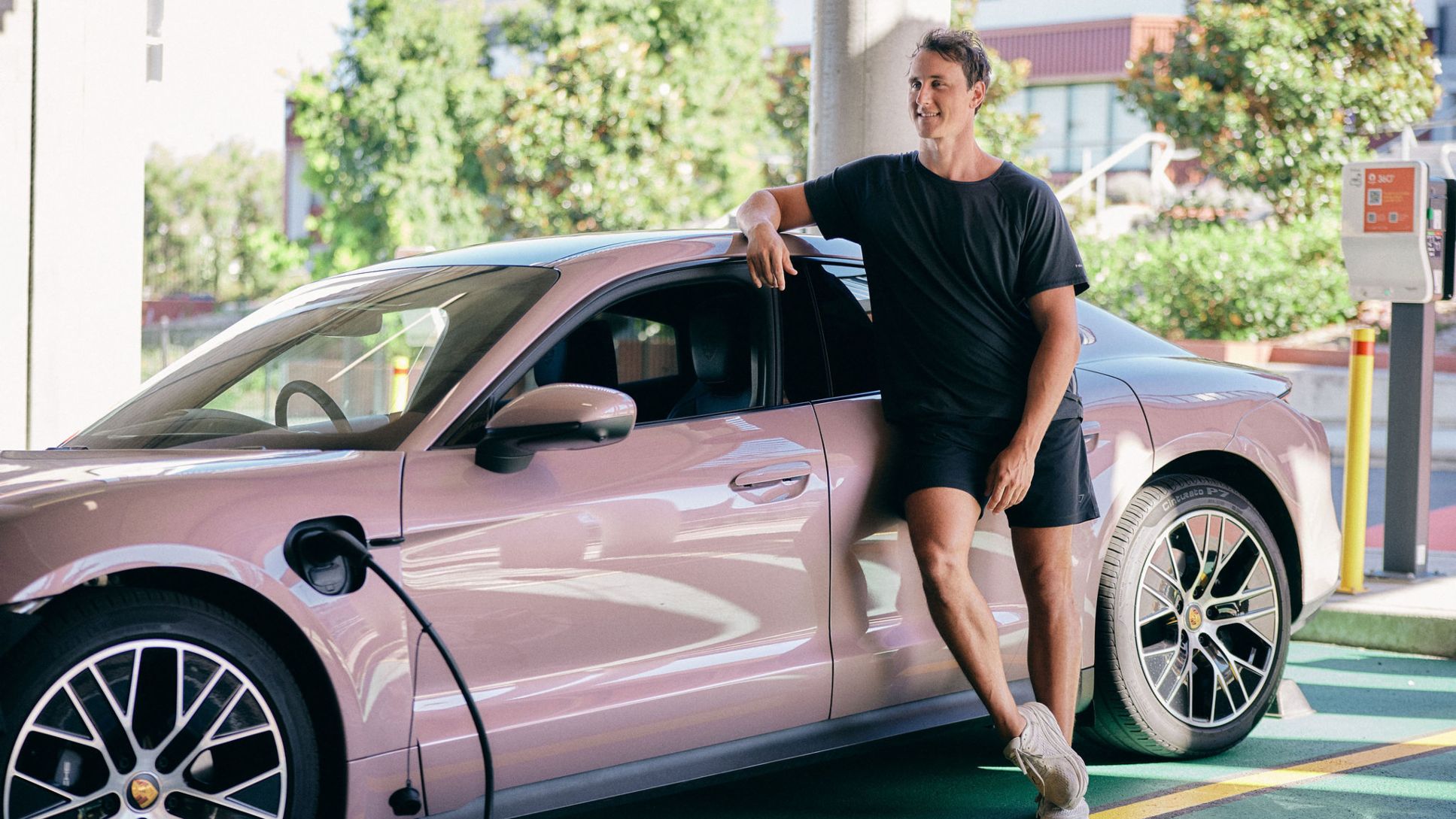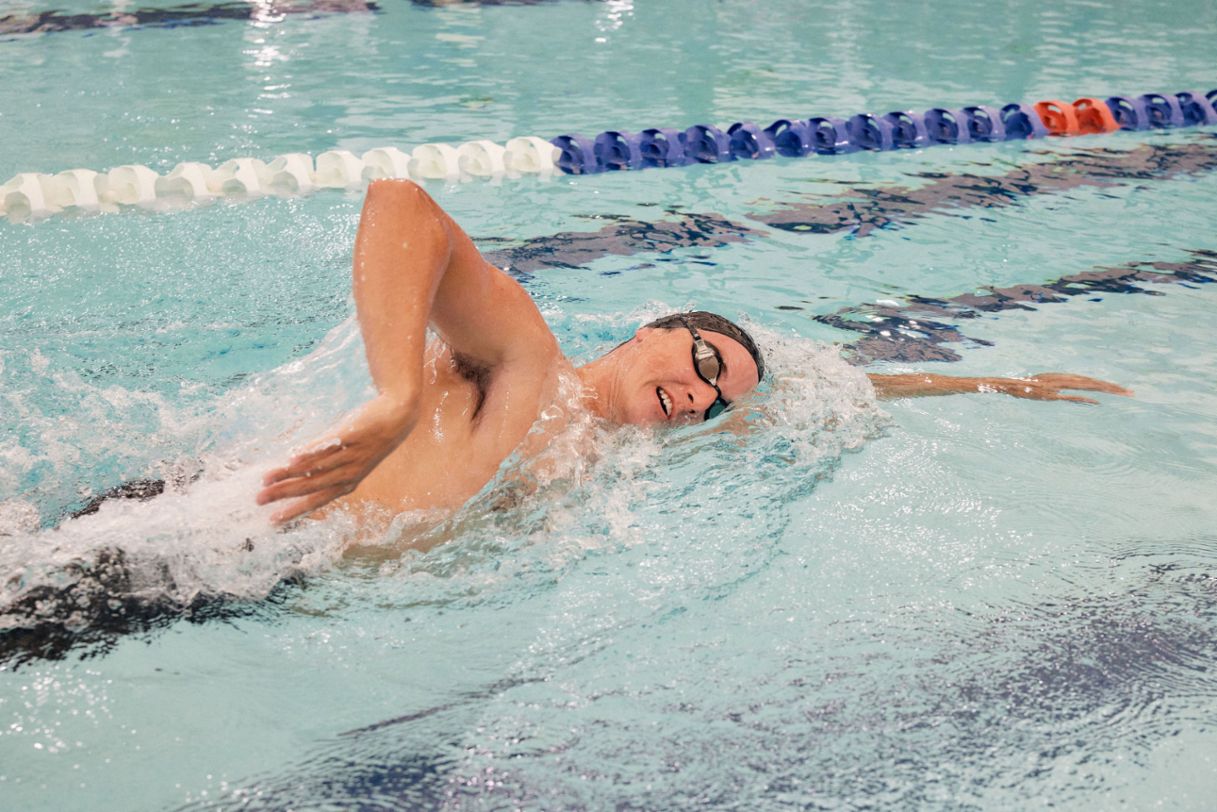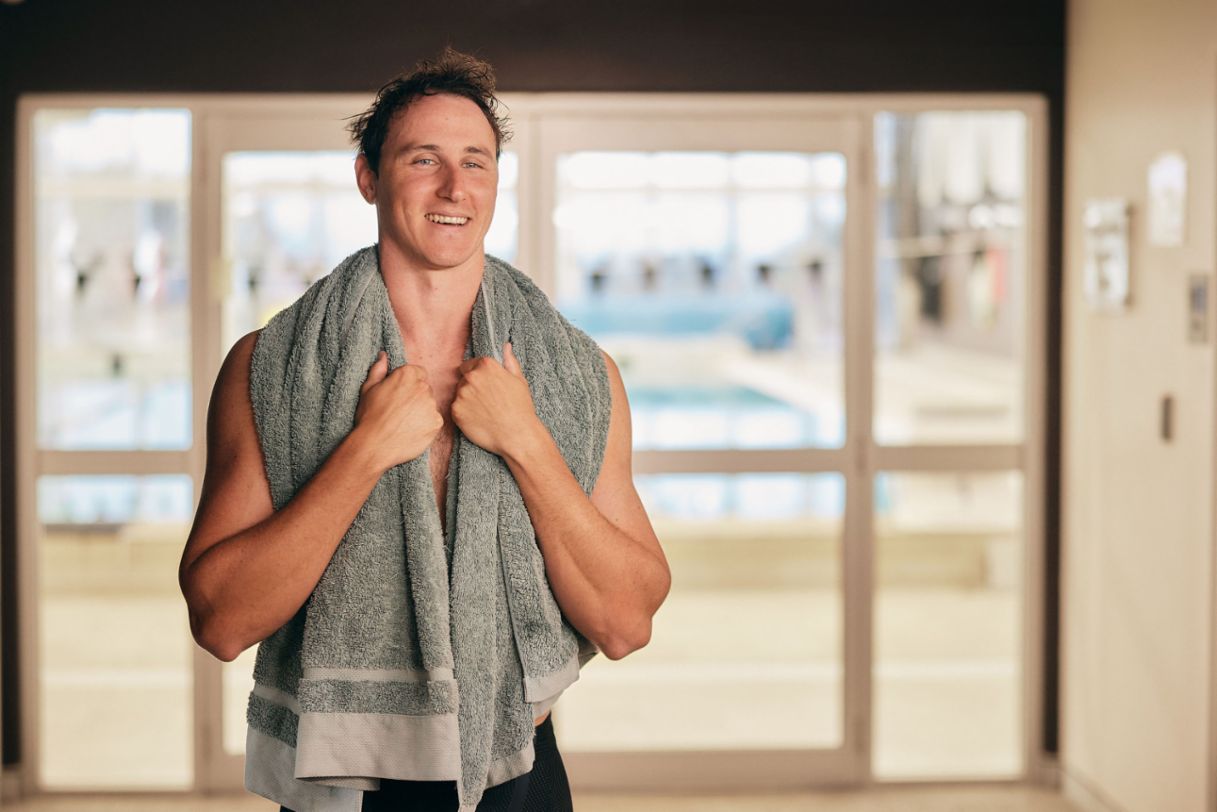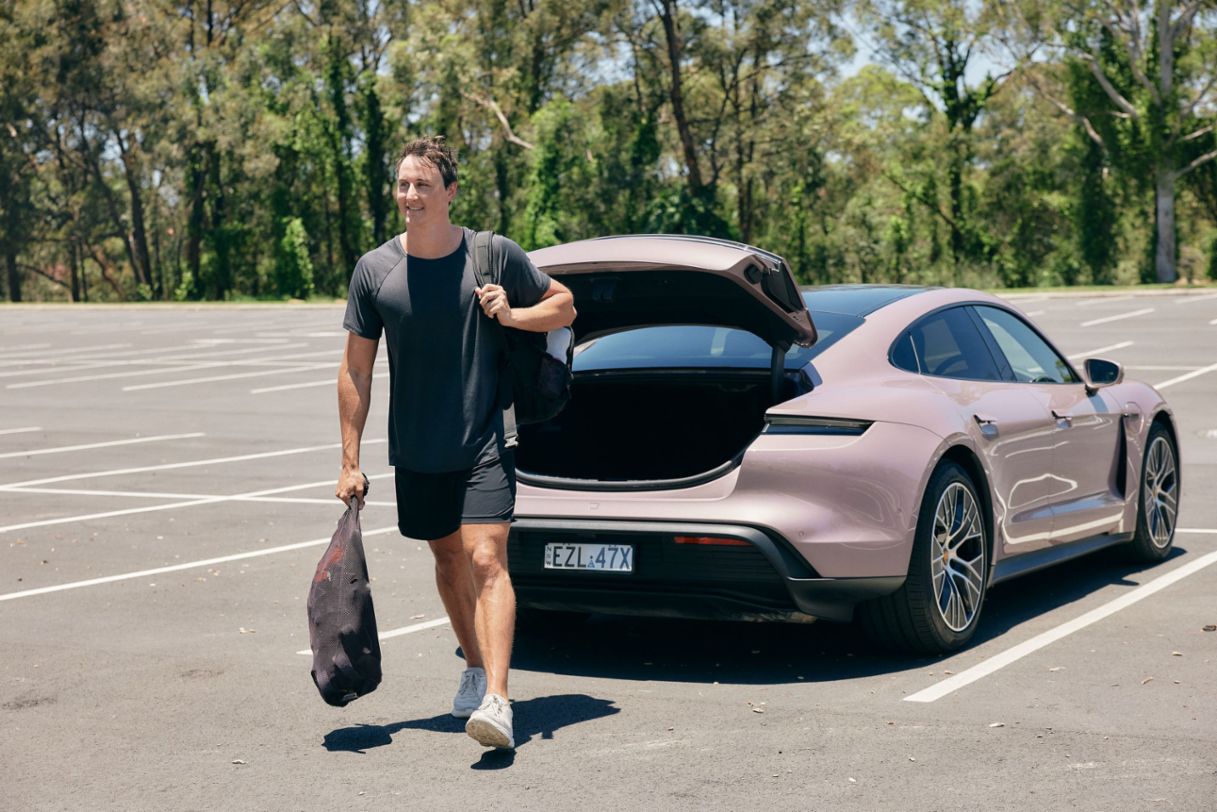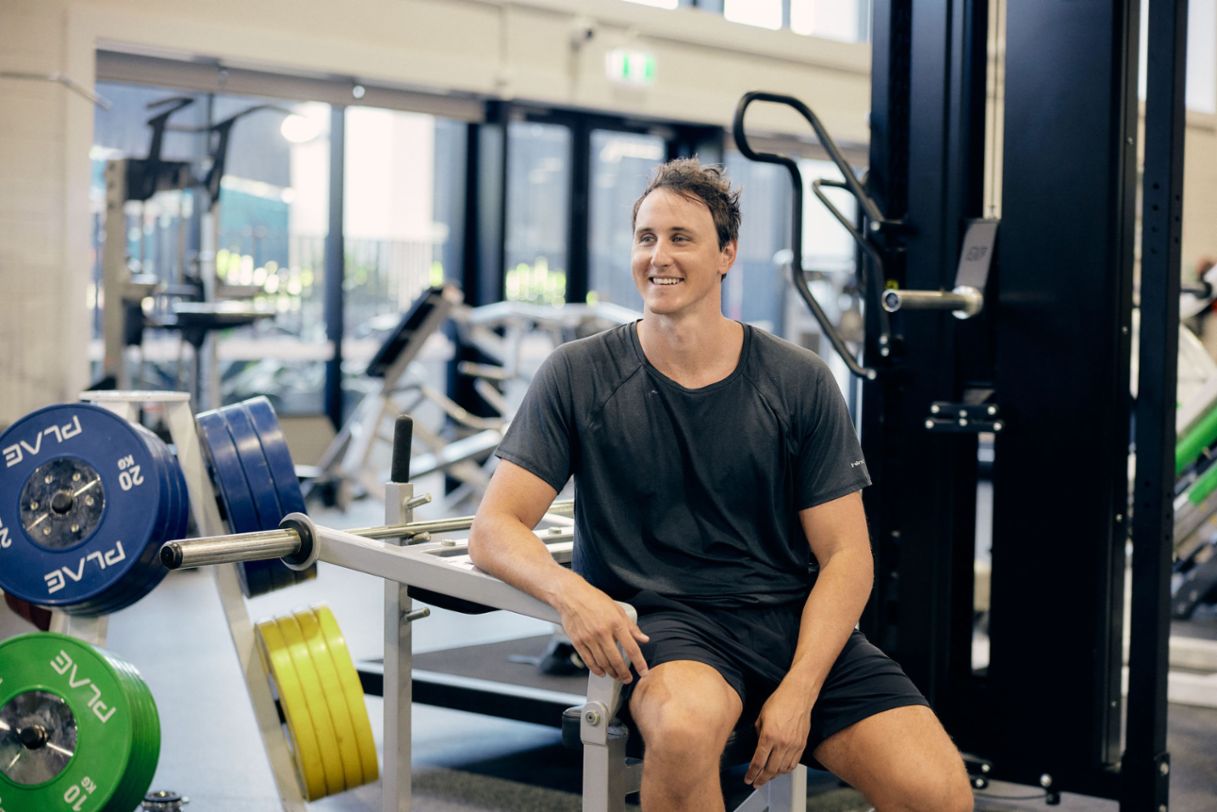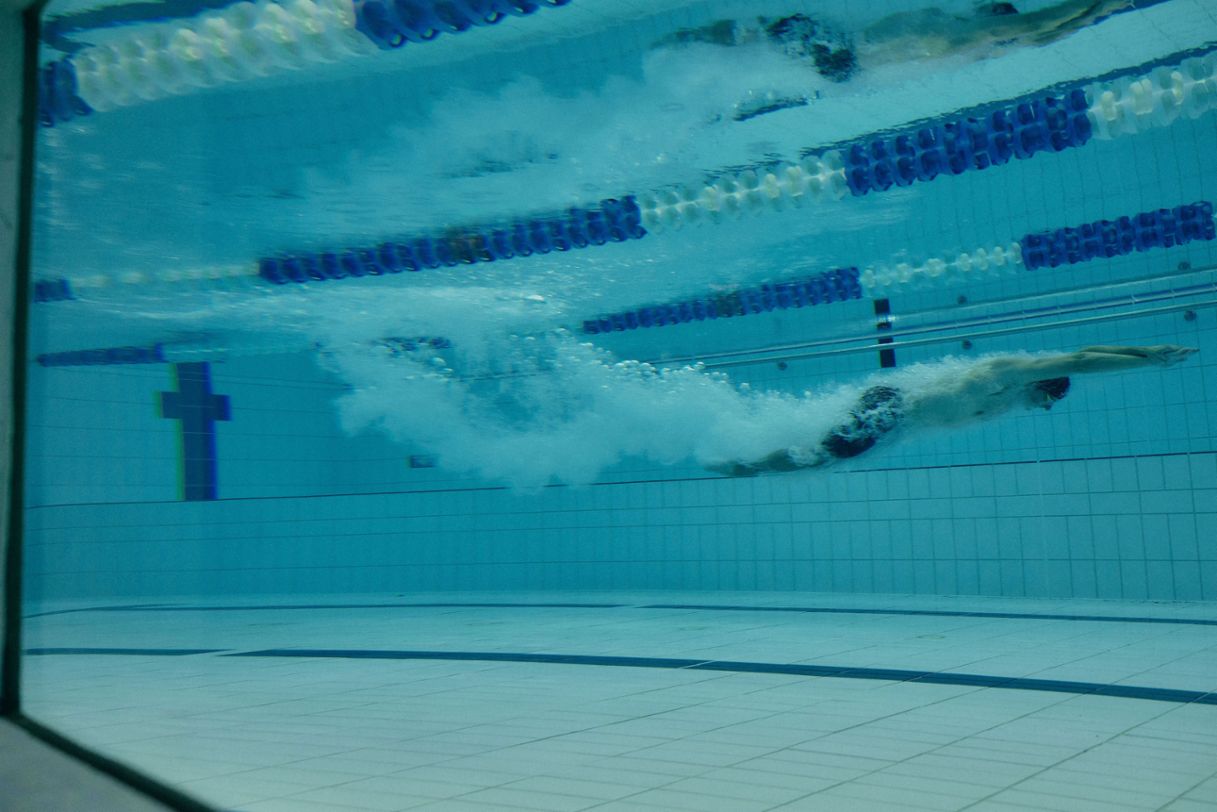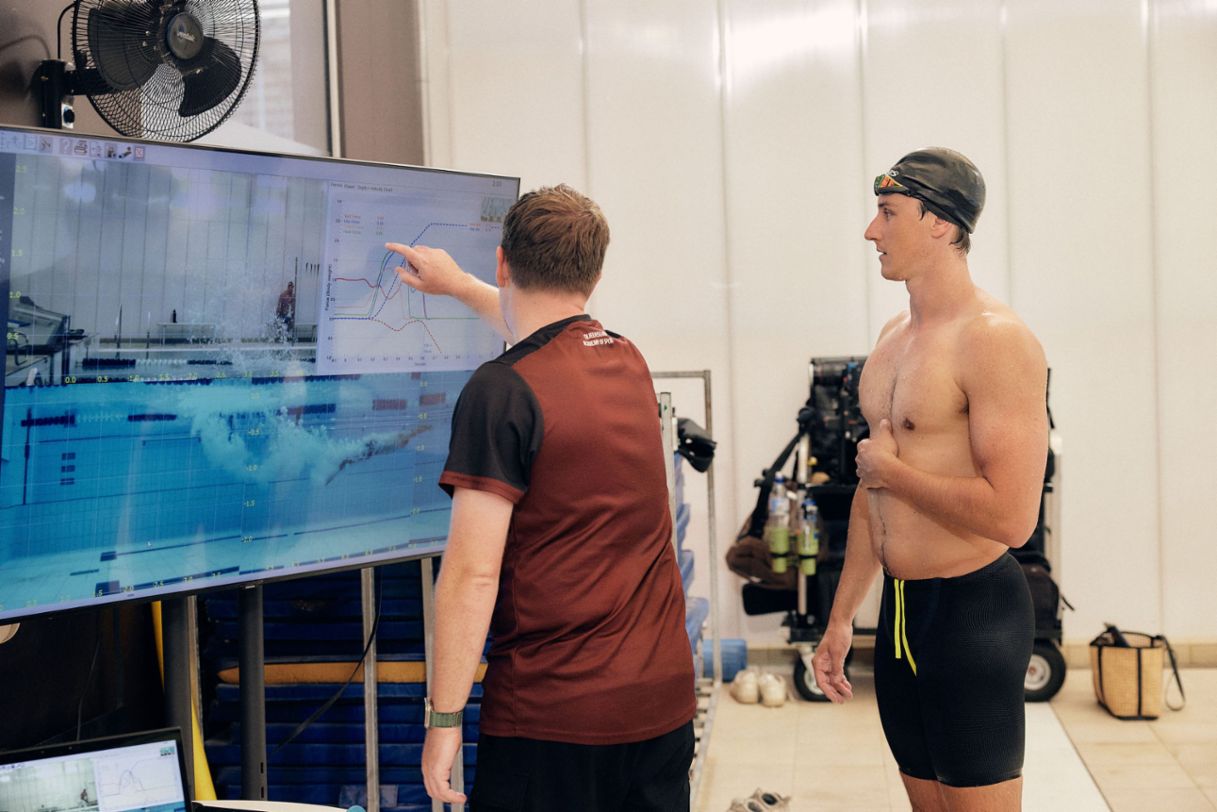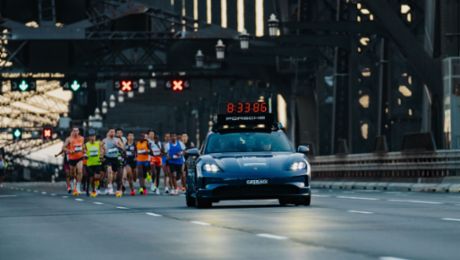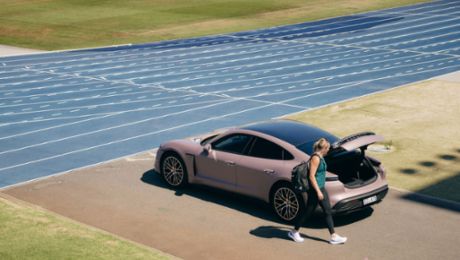Australian swimming champion Cameron McEvoy is familiar with the science behind speed. The Queensland Olympian is an expert at moving through water at astonishing velocities, thanks in part to his academic studies in mathematics and physics, knowledge he uses to crushing effect in the pool.
He is also as innovative as he is fast. Like many trailblazers, he mixes empirical evidence with experimentation, and applies this ingenious approach to maximising his performance at some of the world’s biggest sporting events, achieving remarkable results along the way.
Fast start
Sport runs in Cameron’s family. Framed newspaper clippings reporting the achievements of his grandfather, Australian rugby league great Barney McEvoy, “were plastered all over the walls at home” he says, speaking about the man who was his idol when growing up. “He represented what high performance meant in sport. And if anyone in the family wanted to excel, he showed us it was possible.”
Giving that possibility its first spark for Cameron were the blue waters near his home on Queensland’s Gold Coast.
“I started swimming squad training when I was really young,” he says. “I also did surf lifesaving from the age of seven, so I just spent a lot of time around water. I played other sports like soccer and athletics but swimming came naturally to me.”
“He represented what high performance meant in sport." Australian Olympian Cameron McEvoy speaking about his grandfather, Australian Rugby League great Barney McEvoy
At age 17, Cameron was competing at the 2011 FINA World Junior Championships in Peru. Remarkably, he was racing in much humbler circumstances only a few years earlier.
“My journey with swimming accelerated quickly,” he says. “I started out competing in the schools system around age 11. I did quite well. But when I got to 13 or 14 I began to fall behind a little because of the different rates of growth kids experience at those ages.”
It was a challenging time for Cameron after his early successes in the pool.
“No matter how hard I trained, I progressively stepped backwards in terms of results and rankings, which was really tough.
“But from about age 15 onwards it started to reverse. I began to catch up as I physically grew. It felt like I accelerated. At this time I also learned how to train hard. I learned how to develop myself and I spent long periods of time developing my technical side of swimming.
“So when I won my domestic national age championship, I felt as if I took my first big step.”
It was a big step into the big time, opening the door to future competition successes.
The next year he was racing at the FINA World Junior Championships, where he won Gold in the Men’s 50 Freestyle and the Men’s 100 Freestyle. He also claimed Bronze in the Men’s 200 Freestyle. The following year he qualified for his first senior team, which was also his first Olympic Games.
As Cameron puts it, “Things just moved really fast.”
And fast he was. His first Olympics at London in 2012 prepared him for Medal success at his second Olympics in Rio four years later, where he claimed two Bronze Medals, one in the 4 x 100 metres Freestyle Relay and the other in the 4 x 100 metres Medley Relay. He added a third Olympic Bronze at the following Games in Tokyo.
His Commonwealth Games record is equally impressive. Two Gold Medals and four Silver at the 2014 Glasgow Games added more weight to his trophy cabinet. Two Gold and a Bronze at the 2018 Gold Coast Commonwealth Games boosted his tally further.
He is also the fastest Australian swimmer ever in both the 50 and 100 Freestyle events, holding the Commonwealth record for each of them. He set his 50-metre record at the 2023 World Championships in Japan with a blistering time of 21.06 seconds. The 100-metre record became his with a 47.04 at the Australian Championships in 2016.
Despite his collection of medals and records, one event lives in Cameron’s special memories.
“It is definitely the recent World Championships with the 50 Freestyle,” he says. “That was my first individual World Championship title. More importantly, it came off the back of my last personal best time, which I swam back in 2016 in the lead-up to the Rio Olympics.”
And in Porsche-like fashion, he achieved that personal best result with an innovative approach.
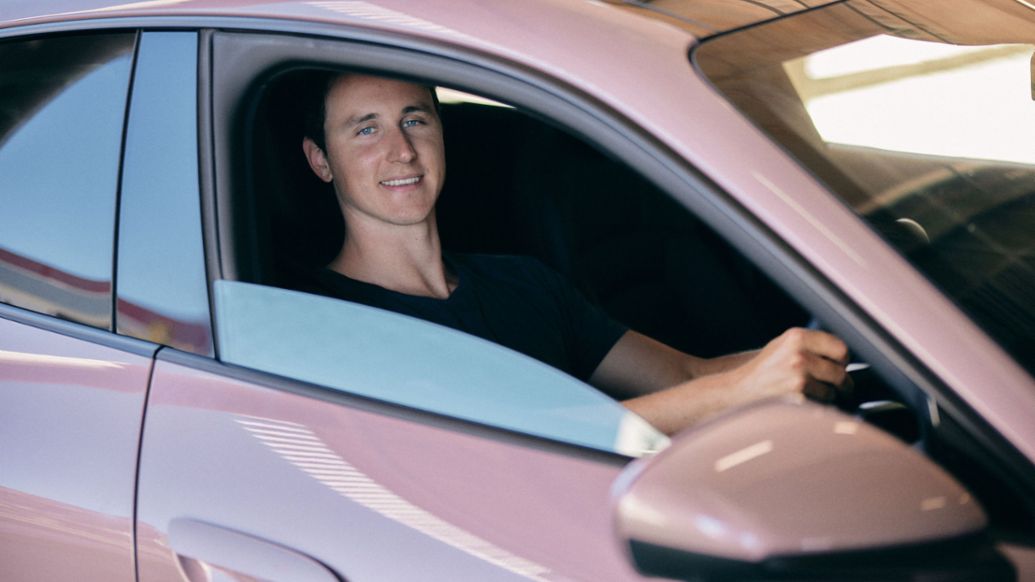
“I completely developed a new approach to swimming. I backed myself to see what would happen." Cameron McEvoy, Australian Olympic swimmer
Rapid prototype
Cameron took a year off after the 2020 Tokyo Olympic Games. He invested the time wisely.
“I completely developed a new approach to swimming,” he says. “I backed myself to see what would happen. And within nine months, I went from 12 months of no swimming to being the current World Champion.”
It was an outstanding feat. It was also a Eureka moment for the sporting star. Cameron’s innovative training methods brought new levels of performance and greater results.
“My nature as a human being is to deeply understand how things work and know the ‘why’ behind things, which is why I investigated how a lot of other sports approach training. I developed a combination of different sporting philosophies and applied it to the context of sprint swimming.
“For me, performance is the refinement of both human movement and intention to get to an overall goal. It’s why a lot of my training revolves around replicating race efforts.
“I do a large portion of my training around resistance sprinting. For example, I either have a small parachute attached to me, or there's a technique called a power tower, which is like a belt around my waist and as I swim out it pulls weights up. It’s like bringing a mix of gym into the pool.”
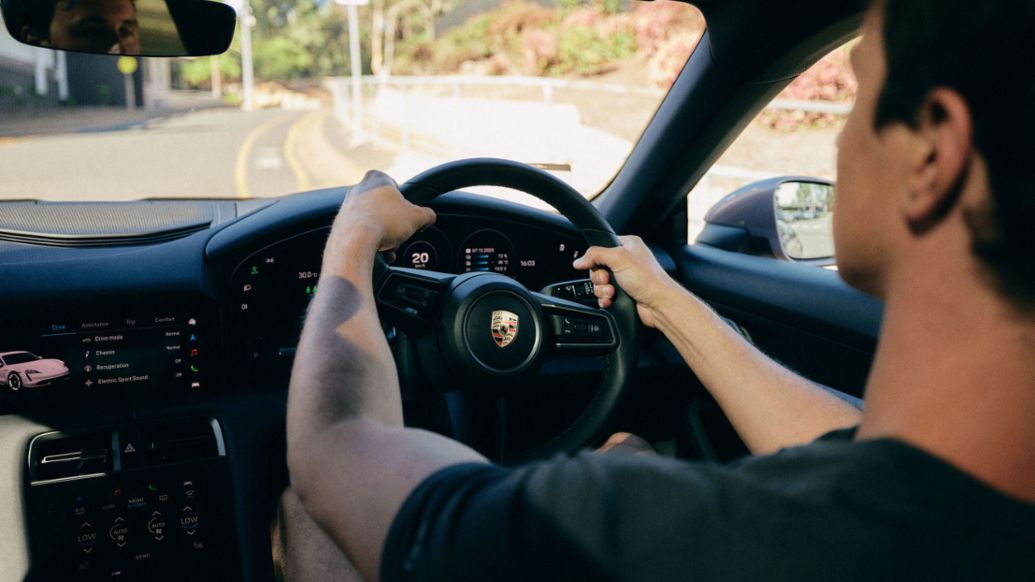
He also applies his academic studies to his innovative training program.
“Some of my physics background allowed me to come up with a way to compare bodyweight technique, swimming with butterfly and freestyle, and compare them to the technique I use at different weights across a wide spectrum, from 10 kilograms to 150 kilograms.
“My nature as a human being is to deeply understand how things work and know the ‘why’ behind things." Cameron McEvoy
"We performed all these tests, produced all these graphs and velocity profiles and then did some mathematics to compare them. It revealed the sweet spot of maximum weight for maximum efficiency of technique."
His methods are so effective they had an unexpected effect.
“I'm probably doing one-tenth the overall volume of actual swimming in the water,” he says. “Traditionally, I was doing around 30 kilometres a week in total while I was training. Now I do somewhere between three and eight kilometres.”
And those fewer training kilometres are now more enjoyable.
“I get to swim fast all the time. And after 18 years of 5:00 A.M. starts, I haven't set my alarm clock since I started training like this.
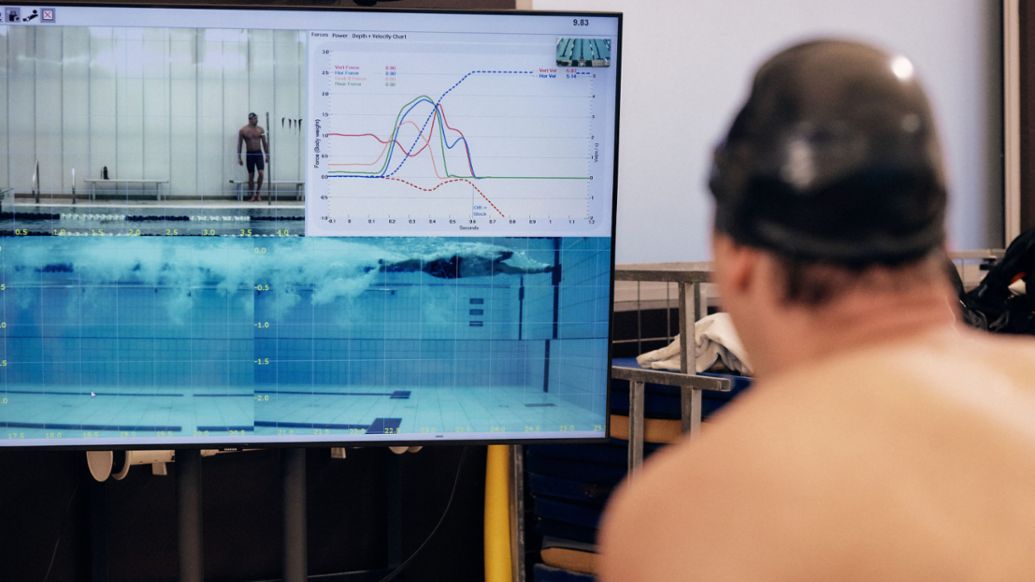
Replenishing power
With so much physical and mental energy invested, rejuvenation is a big part of Cameron’s performance program.
“Recharging is a huge part of training,” he says. “It's necessary to progress. If you don't have those moments of recovery you can actually go in reverse.
“I once read a quote that likens recovery and recharging to a piece of music. You hear the musical notes because they resonate, but the space between the notes are just as important as the notes themselves, because without these spaces then it's just a jumble of constant sound.”
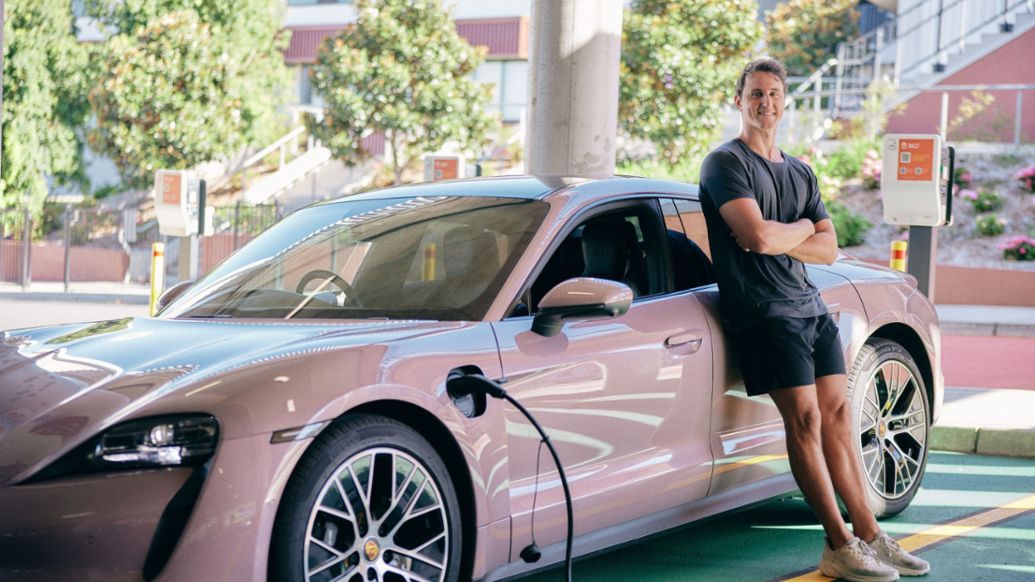
It’s a fitting analogy from this physics-loving high-performance athlete. In fact, when he describes his target swimming event as he steps from the Taycan, it is easy to think he is referring to the car’s Launch Control function.
“My event is the quickest on the program. It’s the fastest that humans can move in water.”
He knows. He has the research findings, and the medals, to prove it.
Info
Images: Phoenix Wilson
